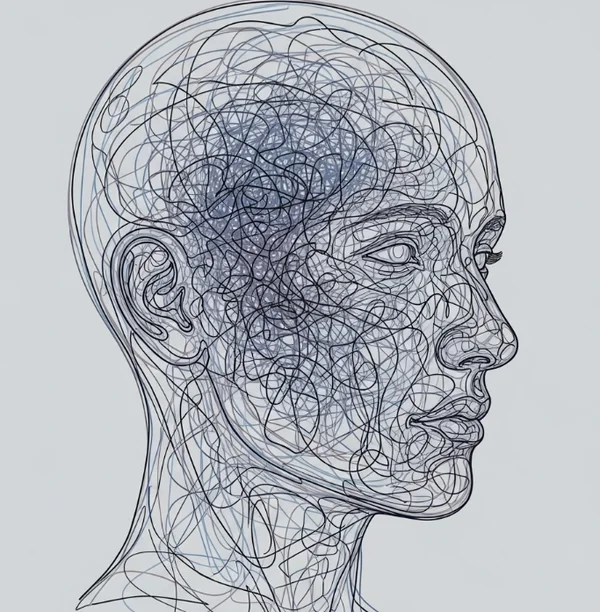Unresolved Trauma: Lasting Impact & Paths to Healing
June 29, 2025 | By Nora Hayes
Have you ever wondered why certain feelings, reactions, or patterns keep repeating in your life, even after years have passed? Perhaps you're experiencing chronic anxiety, unexplained physical symptoms, or difficulties in relationships that seem to stem from nowhere. These could be the lingering echoes of unresolved psychological trauma. It's a question many ask: How do I know if I have trauma? This article will explore what happens when past wounds go unaddressed and, crucially, illuminate the paths available to reclaim your well-being. Understanding these impacts is the vital first step, and tools like a free trauma test can offer valuable initial insights.

Understanding Unaddressed Trauma: A Deeper Look
Trauma is a deeply distressing or disturbing experience. While some might think of "trauma" only in terms of major, life-threatening events, it can also stem from prolonged stress, emotional neglect, or repeated "smaller" hurts that chip away at our sense of safety and self. When these experiences are not processed effectively, they can become unaddressed trauma, silently shaping our lives.
What Does "Unresolved" Truly Mean?
When we talk about unresolved trauma, we're referring to past distressing experiences whose emotional and psychological impacts haven't been fully integrated or processed by the brain and body. Instead of becoming a past memory, the trauma remains "stuck," often manifesting as if the event is still happening in the present. This isn't a sign of weakness; it's the brain's natural protective mechanism stuck in overdrive. Without healthy processing, these lingering wounds can affect our thoughts, emotions, behaviors, and even physical health for years, sometimes decades.
The Silent Burden: Why Wounds Linger
Why don't all painful experiences naturally fade away? Trauma often overwhelms our natural coping mechanisms. During a traumatic event, the brain's priority is survival, not coherent memory formation. This means the memories can be stored fragmentedly, without a clear beginning, middle, or end. When these memories are triggered later—by a sight, sound, smell, or even a feeling—the body can react as if the original danger is present, leading to intense emotional and physiological responses. This persistent activation keeps the wound raw, preventing the natural healing process and creating a silent, heavy burden that many carry unknowingly.
What Does Unresolved Trauma Look Like? Its Lasting Impact
The signs of unresolved trauma can be incredibly diverse, ranging from subtle shifts in personality to profound disruptions in daily life. It's not always obvious, and sometimes, people attribute these symptoms to other causes. Recognizing these manifestations is crucial for understanding your experiences and seeking the right support.
Emotional & Psychological Manifestations
Unresolved trauma symptoms often manifest profoundly in our emotional and psychological landscape. You might find yourself grappling with persistent chronic anxiety or a feeling of constant unease, even when there's no apparent threat. Depression can become a heavy cloud, making it hard to find joy or motivation. Many people experience emotional numbness, a sense of detachment from their feelings or from the world around them, as a way to cope with overwhelming emotions. Flashbacks, intrusive thoughts, or nightmares related to the past event are common, pulling you back into the pain unexpectedly. Irritability, sudden mood swings, and difficulties with emotional regulation can also make daily life challenging, impacting your inner peace and stability.
Physical Symptoms of Trauma & The Body Connection
Trauma isn't just "in your head"; it's deeply wired into your body. The nervous system, once activated for survival, can remain in a state of high alert even after the danger has passed. This can lead to a range of physical symptoms of trauma that are often perplexing. Chronic fatigue, digestive issues, muscle tension, headaches, and even unexplained pain can all be somatic manifestations of stored trauma. Sleep disturbances, such as insomnia or vivid nightmares, are also common. The body remembers what the mind might try to suppress, and these physical signals are often a cry for attention, indicating that deeper healing is needed.

Impact on Relationships and Daily Functioning
The impact of unresolved trauma can ripple through our relationships and daily life. Trust can be incredibly difficult to build or maintain, leading to feelings of isolation and loneliness. You might find yourself stuck in patterns of dysfunctional behaviors, such as people-pleasing, avoidance, or intense conflict, as a way to unconsciously recreate or control past traumatic dynamics. Self-esteem often plummets, making it hard to feel worthy or capable. Concentration problems at work or school, difficulty making decisions, and a general sense of feeling overwhelmed can lead to an impaired quality of life. These challenges highlight how unaddressed trauma can profoundly affect every aspect of your existence, making it hard to thrive.
Taking the First Step: Paths to Healing and Relief
Acknowledging the possibility of unresolved trauma is a courageous first step. The journey to healing is deeply personal, but it's one that doesn't have to be walked alone. There are concrete paths and resources available to help you understand your experiences and move towards a more peaceful future.
Understanding Your Trauma Response
Before diving into complex therapies, a crucial first step is simply understanding your unique trauma response. This means recognizing how past experiences might be influencing your present thoughts, emotions, and behaviors. Are you prone to fight, flight, freeze, or fawn responses? Do certain situations trigger intense reactions you don't understand? Getting clarity on these patterns is empowering. A preliminary screening tool, such as an online trauma test, can offer a safe and anonymous starting point. These assessments are designed to help you identify potential symptoms and understand areas where you might need further attention, whether for yourself or for your child (a childhood trauma test is also available).
The Power of Professional Support
While self-awareness is vital, professional support is often indispensable for true healing from trauma. Therapists specializing in trauma-informed care can provide a safe space and effective techniques to process past events. Modalities like Eye Movement Desensitization and Reprocessing (EMDR), Cognitive Behavioral Therapy (CBT), Somatic Experiencing, and Internal Family Systems (IFS) are specifically designed to help integrate traumatic memories and regulate the nervous system. Remember, seeking professional help is a sign of strength, not weakness. It means you are choosing to invest in your well-being and break free from the past's hold.

Everyday Coping Strategies
Beyond formal therapy, incorporating everyday trauma coping skills can significantly support your healing journey. Grounding techniques, like focusing on your five senses, can help bring you back to the present moment during moments of overwhelm. Mindfulness and meditation practices can cultivate greater self-awareness and emotional regulation. Engaging in physical activity, ensuring adequate sleep, and maintaining a balanced diet are foundational for nervous system health. Building a strong support network of trusted friends or family, engaging in creative expression, and practicing self-compassion are also powerful tools that foster resilience and promote healing.
Your Journey to Understanding and Healing Begins Here
Recognizing and addressing unresolved trauma is a profound act of self-care. It's about giving yourself the compassion and attention needed to process lingering pain and build a life of greater peace and fulfillment. The journey might be challenging at times, but it is deeply rewarding.

If you resonate with any of the experiences described in this article, please know that clarity and healing are possible. Our platform serves as your gateway to understanding psychological trauma. Our free, anonymous, and scientifically designed online assessment can provide you with initial insights into potential trauma symptoms. It's a compassionate first step on your path to well-being. Take a moment to discover your results today and begin your journey toward understanding and healing.
Frequently Asked Questions About Unresolved Trauma
How do I know if I have trauma?
Recognizing trauma can be challenging because its symptoms vary widely. Common indicators include persistent anxiety, depression, emotional numbness, difficulty with relationships, unexplained physical symptoms like fatigue or chronic pain, flashbacks, nightmares, or a sense of being constantly on edge. If these experiences resonate with you, taking a preliminary trauma test can offer valuable insights. Consider visiting our website to take a free, confidential assessment.
Can you self-diagnose trauma?
No, you cannot self-diagnose trauma. While online resources and self-assessments, like those available here, can help you identify potential symptoms and gain a better understanding of your experiences, they are not diagnostic tools. Only a qualified mental health professional can provide an official diagnosis. Our online trauma test is designed for preliminary screening, empowering you with information to decide if professional support might be beneficial.
What is the most accurate way to assess potential trauma?
The most accurate way to assess potential trauma involves a comprehensive evaluation by a licensed mental health professional. This typically includes a clinical interview, symptom assessment, and a review of your history. However, for an initial, accessible step, a scientifically designed psychological trauma test or screening tool like the one available on our site can be highly beneficial. It provides a confidential way to gauge your symptoms and guide your next steps towards professional consultation.
How to begin healing from childhood trauma?
Beginning to heal from childhood trauma often involves a multi-faceted approach. The first step is acknowledging its impact. A childhood trauma test can offer initial clarity on how early experiences might still be affecting you. Following this, seeking professional therapy, especially trauma-informed approaches like EMDR or Somatic Experiencing, is highly recommended. Incorporating self-care practices, building a strong support system, and practicing self-compassion are also crucial components of the healing journey. Start your path to understanding by taking a free online assessment today.